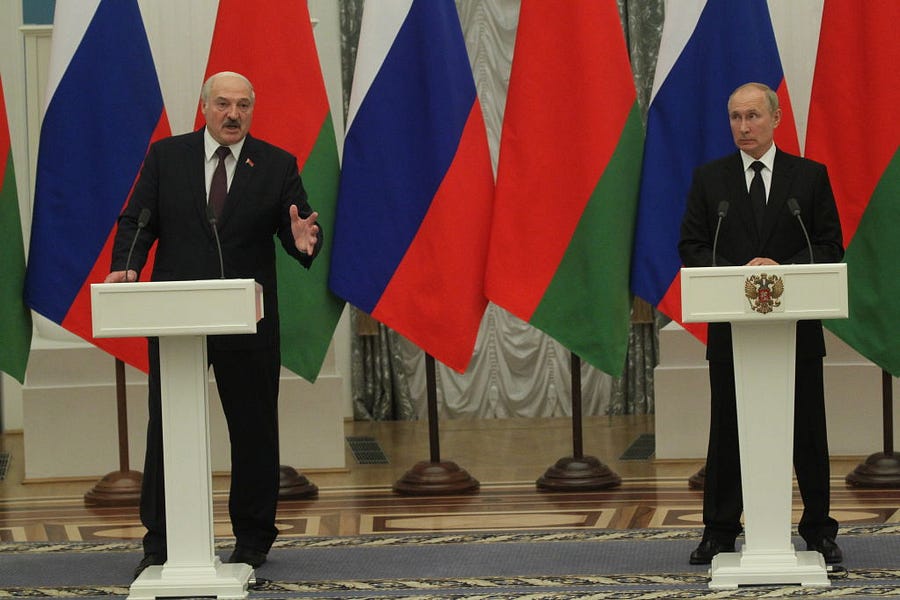Joe Biden is not the first president to prioritize U.S. engagement in the Indo-Pacific region over other items on his foreign policy agenda, including the transatlantic partnership. In 2009, Barack Obama declared himself “America’s first Pacific president”; two years later, then-Secretary of State Hillary Clinton announced the administration’s “pivot to Asia.” The fate of that attempt at geopolitical rebalancing—as well as of the largely ineffectual efforts by the Trump administration to do the same—should serve as a warning.
It’s not that the focus is unwarranted; in fact, the logic underlying the current shift of the focus of U.S. foreign policy to Asia and the Pacific is impeccable. The region’s economic weight is growing compared to the developed (and sluggish) economies of Europe. China is clearly America’s most important global rival, and it has behaved aggressively not only toward Hong Kong and Taiwan but also in the South China Sea and elsewhere. In principle, Europeans have ample resources to take care of themselves and their neighborhood.
Yet it takes only one curveball to throw an administration’s best-laid plans into disarray and force a president to fight fires in multiple regions around the world. In Obama’s case, there were a few such curveballs—from the failed democratization in the Middle East and North Africa, which the administration was late and half-hearted in managing, to Vladimir Putin’s opportunistic aggression against Ukraine and his brazen outreach to political extremists of all stripes.
More than anything, the end of Obama’s supposedly “Pacific” presidency was marked by the wave of nativism in Europe unleashed by refugee crisis of 2015—itself a result of leaving the Middle East to its own devices—and by alarm at the boldness of the Kremlin in meddling in European and U.S. politics. The latter crisis reached its apotheosis with “Russiagate,” which captured the imagination of many Democrats following Trump’s victory.
True, Western European democracies in 2021 do not need America’s constant hand holding. France, for example, will most likely be okay, no matter whether Emmanuel Macron wins reelection next year. Even Brexit, a once-unthinkable instance of European disintegration that resulted from a surge of populism, has been at most a nuisance—and certainly not an existential threat either to the European project or to British democracy.
Yet, particularly in its East, Europe remains vulnerable. Poland and Hungary, two NATO allies and EU member states, have de-democratized in recent years—to the point of seemingly unresolvable standoffs between their governments and European institutions. The fallout from either’s departure from the EU would be qualitatively different from Brexit, and far more destabilizing for the entire region.
While the world was looking elsewhere this summer, Belarusian dictator Aleksander Lukashenko sought to provoke a refugee crisis on his country’s border with Lithuania and then hosted Russia’s massive “Zapad” exercises, in which Belarusian and Russian forces were jointly responding to the scenario of a putative NATO intervention in the country.
Russia’s own regime is, of course, no match for the Chinese threat. Yet, it has plenty of hard and soft power to destabilize its neighbors and wreak havoc that could keep the administration distracted from its professed priorities for years to come.
Those are only the most obvious concerns. How confident can one be, furthermore, that current tensions between Serbia and Kosovo do not escalate into a conflict that will require Washington’s attention, much like in the 1990s? And what if the Taliban’s rule sets in motion a new wave of asylum seekers into Europe? Anti-immigrant sentiment lingers from the 2015 crisis, and an influx of Afghan refugees is likely to create tension between those in the EU who believe that Europe has an obligation to help and governments that are wary of an uncontrolled influx of asylum seekers.
When Obama’s lack of interest in Europe became public knowledge, a group of Eastern European statesmen and intellectuals, including Vaclav Havel, Lech Walesa, and Ivan Krastev, warned against the perception in Washington that their region was “fixed once and for all and that they could ‘check the box’ and move on to other more pressing strategic issues.” The authors predicted the looming tide of “nationalism, extremism, populism, and anti-Semitism” and urged the U.S. administration to look at the “storm clouds [gathering] on the foreign policy horizon” in Europe.
While the particulars have changed, the warning remains as relevant today as it was 12 years ago. The current administration’s emphasis on China’s challenge and on stability and security in the Indo-Pacific is correct, as is the presumption that Europe, particularly Central and Eastern Europe, can at best play a marginally helpful role in such efforts.
However, a global superpower must be always ready to juggle more than one ball at a time. Following the mishandled withdrawal from Afghanistan, the transatlantic fallout from the AUKUS deal, and the thoughtless EU travel ban that Biden only last week announced would be eased starting in November, it is reasonable to ask whether the United States is still up for the job. Unless Biden steps up, events might give us an answer sooner than we think.
Dalibor Rohac is a senior fellow at the American Enterprise Institute in Washington, D.C. Twitter: @DaliborRohac.








Please note that we at The Dispatch hold ourselves, our work, and our commenters to a higher standard than other places on the internet. We welcome comments that foster genuine debate or discussion—including comments critical of us or our work—but responses that include ad hominem attacks on fellow Dispatch members or are intended to stoke fear and anger may be moderated.
You are currently using a limited time guest pass and do not have access to commenting. Consider subscribing to join the conversation.
With your membership, you only have the ability to comment on The Morning Dispatch articles. Consider upgrading to join the conversation everywhere.